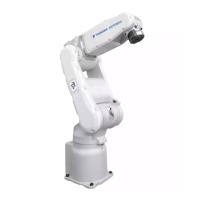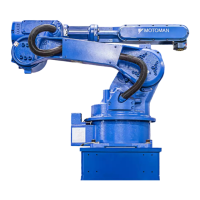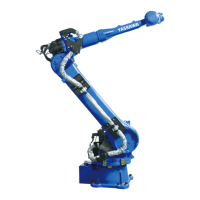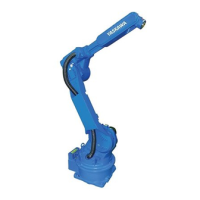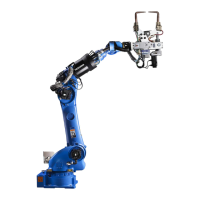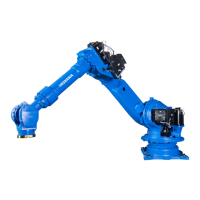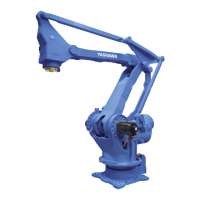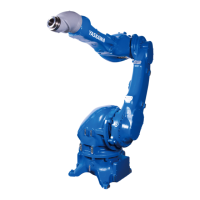Security system
8 - 67
8.2 Security mode
There are five security modes:
• OPERATION MODE
• EDITING MODE
• MANAGEMENT MODE
• SAFETY MODE
• ONE TIME MANAGE MODE
EDITING MODE, MANAGEMENT MODE and SAFETY MODE require a user ID.
For the EDITING MODE and MANAGEMENT MODE, the user ID should be 4 or more and
16 or less characters with number(s) and symbol(s). As for the SAFETY MODE, it should
be 9 or more and 16 or less characters with number(s) and symbol(s).
(Significant numbers and symbols: ”0 to 9”, “-”, “.”. )
Operating the ONE TIME MANAGE MODE requires to enter the security code, which is
issued by YASKAWA sales representative.
Tab. 8-1: Description of the security mode
Security mode Explanation
OPERATING MODE This mode allows the robot's basic operations to be used
(stop, start, etc.) in a production line.
EDITING MODE In this mode, JOBs can be taught and edited and robot set-
tings can be made.
MANAGEMENT MODE In this mode, authorised users can set up and maintain the
robot system: parameters, system time and user ID modi-
fication.
SAFETY MODE his mode allows the operator to setup the safety function,
and able to edit the files related to the safety function.
When the optional function “functional safety” is valid, the
security is changed to the safety mode to edit the some
files, such as the tool file. Refer to “OPTIONS INSTRUC-
TIONS FOR FUNCTIONAL SAFETY BOARD OPERA-
TION for more details.
ONE TIME MANAGE
MODE
This mode allows to operator to maintain the mode which
is higher than the MANAGEMENT MODE.
The loading limitation of the batch data (CMOS.BIN), the
parameter batch data (ALL.PRM) and the functional defini-
tion parameter (FD.PRM) are removed.
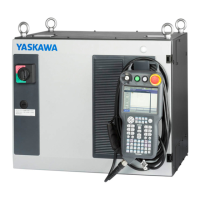
